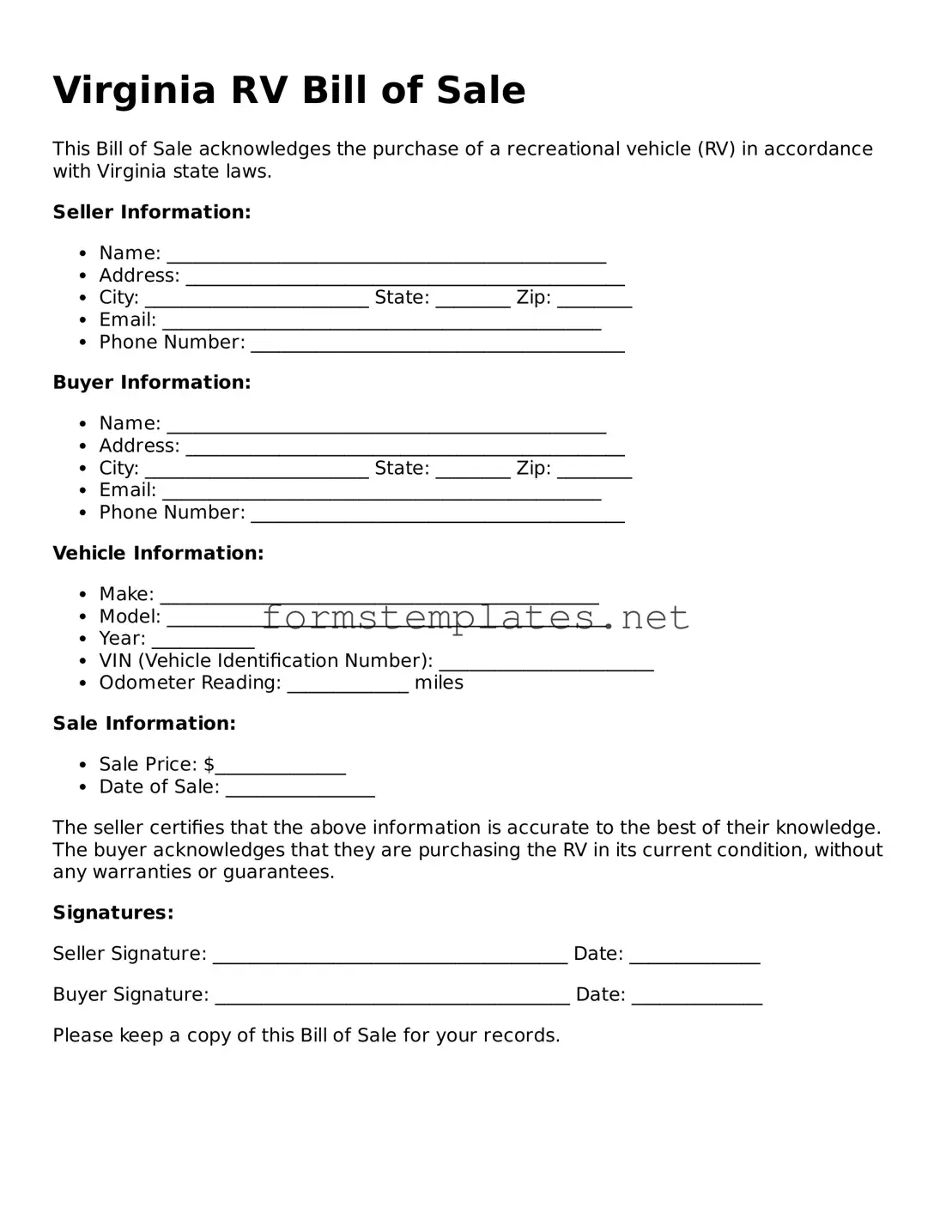Attorney-Approved Virginia RV Bill of Sale Template
The Virginia RV Bill of Sale is a legal document that records the transfer of ownership of a recreational vehicle in the state of Virginia. This form serves as proof of the sale and provides important details about the transaction, including the buyer, seller, and vehicle information. Understanding how to properly complete this form can help ensure a smooth transfer process and protect both parties involved.
Open Editor Now

Attorney-Approved Virginia RV Bill of Sale Template
Open Editor Now

Open Editor Now
or
⇓ PDF Form
Your form still needs attention
Finalize RV Bill of Sale online — simple edits, saving, and download.